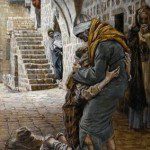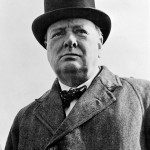It was April, 1935. And Winston Churchill, a lowly Member of the British Parliament, was beside himself. After all, the German Fuhrer had done it again. After being in power for a little over two years, German Chancellor (and de jure Dictator) Adolf Hitler had baldly & brazenly told his British counterparts that the German air force (the existence of which was outlawed by the Versailles Treaty of 1919) now equaled the British Royal Air Force in size. But Churchill’s frustration wasn’t so much directed toward the nefarious German leader, but rather to his own government. You see, the information about the rising German threat had already been known – and warned about – five months earlier by none other than Winston Churchill himself. It had been known and ignored.
But that was not the worst of it. Now that the truth of Germany’s belligerence and build-up was revealed and indisputable (from the Fuhrer’s own mouth), the British government was still reluctant to act. It seemed frozen in vacillation, desperately grasping on to hollowed international institutions and wishful thinking. Churchill pled with the House of Commons, persuasively. Or so he thought. But in The Gathering Storm, the first volume in Churchill’s Second World War memoirs, he mourned,
“Although the House listened to me with close attention, I felt a sense of despair. To be so entirely convinced and vindicated in a matter of life and death to one’s country, and not to be able to make Parliament and the nation heed the warning, or bow to the proof by taking action, was an experience most painful.”
He reminded Parliament about a strategic defeat in an 18th century battle due to a logistical mistake by one of the Government’s Ministers. When this consequential mistake was revealed to that 18th century Parliament, they sat in stunned silence for 30 minutes. They were cognizant of and gripped by the seriousness of the blunder. And yet that mistake was nothing compared to the looming threat Germany was now posing. But Churchill’s Parliament remained irresolute.
“There lay in my memory at this time some lines from an unknown writer about a railway accident. I had learnt them from a volume of Punch cartoons which I used to pore over when I was eight or nine years old at school at Brighton.
‘Who is in charge of the clattering train?
The axles creak and the couplings strain;
And the pace is hot, and the points are near,
And Sleep has deadened the driver’s ear;
And the signals flash through the night in vain,
For Death is in charge of the clattering train.'”
It is well known how things turned out. Though ultimate victory would rest with the Allies, over 50 million would lose their lives in the greatest conflagration the world has ever known. And a treacherous and costly Cold War would begin in the immediate aftermath of World War II.
But let us return to Edwin James Milliken’s 19th century haunting poem, Death and His Brother Sleep. In spite of Churchill’s hybridization of the beginning and end of the poem, he makes a mean point. The poem portrays the train, the speeding train ever-attempting to make up for lost time, under the careful operation of man “stalwart, vigilant, patient, bold”. And behind this reliable man,
“away at his back,
In a dozen cars, on the steely track,
A hundred passengers place their trust
In this fellow of fustian, grease and dust.
They cheerily chat, or they calmly sleep,
Sure that the driver his watch will keep
On the night-dark track, that he will not fail.“
Until he falls asleep. And Hell visits these passengers.
It was at this time that I couldn’t help thinking about St. Pope John Paul II’s brilliant encyclical, Veritatis Splendor (The Splendor of the Truth). The modern world is infatuated with the notion of conscience. We say all sorts of pseudo-enlightened things like, “My conscience is clear.” or “My conscience allows me to sleep at night.” We treat conscience as the infallible guide and final judge of all actions. If we aren’t pricked by our conscience to act otherwise, we can barrel ahead into any number of misadventures.
But John Paul II offers a corrective.
A conscience is a good guide…if it is well-formed. A well-formed conscience is nourished by prayer, engagement in the sacraments and study of God’s word and tradition. A well-formed conscience is wedded to God’s Law and corrects our actions using this infallible Law as its supreme standard. But St. Pope John Paul II warns,
“When God’s truth is obscured, human consciences are also deformed, if sin is denied, God is also denied…Human conscience goes astray if it is neglected and deprived of the truth.”
To repeat, consciences can become blunted and deformed. Starved of prayer, sacraments and study, a deformed conscience can lose sight of Truth and comport itself to Untruth. We can find ourselves unpricked, uncorrected and unaware that our path is going astray. Before long we can find that our ill-formed or deformed conscience is in the service of our self-satisfying appetites while disregarding the God who should be its true master. So it is important that each of us ask: Is my conscience, starved for spiritual formation, behaving like Churchill’s 1935 government – aloof to the truth, disdainful of true responsibility, curiously caretaking of my selfish appetites through wishful thinking? Is my conscience like the distracted, overtired and malnurtured train conductor who is simply, yet deeply and completely asleep at the wheel?
If so, then perhaps I am like one of the people in the back of my sleeping conscience’s train: oblivious, contented and quite possibly doomed.
“A hundred hearts beat placidly on,
Unwitting they that their warder’s gone;
A hundred lips are babbling blithe,
Some seconds hence they in pain may writhe.
For the pace is hot, and the points are near,
And Sleep hath deadened the driver’s ear;
And signals flash through the night in vain.
Death is in charge of the clattering train!”
Who’s in charge of our clattering train? Indeed.
Who?











